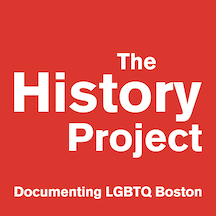Hidden in Plain Sight: Documenting Queer Stories in Archives

MHS Event
Tripp Evans, Wheaton College; Heather White, Harvard Divinity School; and Jen Manion, Amherst College
This program is co-sponsored by The History Project
This is a hybrid event. The program will began at 6:00. Register for how you plan to attend below.
Researching Queer history in archives poses unique challenges. Where written records survive, a person’s sexual life or desires may not be included in the records or might be veiled. In other scenarios, descendants of LGBTQ+ people have censored or destroyed records. In the face of these issues, how do we create inclusive and accurate histories? Panelists will reflect on methods they have used to navigate the archives and highlight Queer stories. The panel also asks, how do you write LGBTQ+ history when the records are not enough?

Hybrid Event
The program will begin at 6:00.
Masks are now required in the building. Learn more about our COVID-19 protocols.
The virtual program begins at 6:00 PM and will be hosted on the video conference platform, Zoom. Registrants will receive a confirmation message with attendance information.
